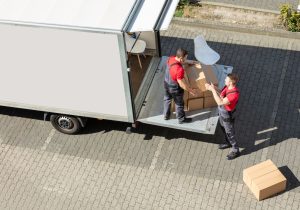A long-distance move can be a mix of emotions and challenges. That’s because cross-country moving will require you to do a lot of things. From making a list of your items to packing and then transporting them. But a lot can be missed in between those tasks especially if you haven’t tried relocating before. So the key to an enjoyable and less stressful cross-country moving experience is preparation coupled with the assistance of a reputable moving company. So here are some helpful long-distance moving tips to make your transfer to your new home a lot easier:
Organizing and Preparing Before the Move
Here are a few steps to do before the move that will help make the whole process go smoothly.
- Create a plan.
During the planning phase, you should write down what needs to be done. This includes listing all the household items and how to move them, plotting your schedule, finding a trustworthy moving company, and estimating your budget. Doing this early will make your transfer a lot smoother and help you avoid complications.
- Stick to your schedule.
Moving does not happen overnight. There are things that have to be done before the move. Things like finding supplies for packing, removing clutter, and packing household items. So make sure to stay on top of your schedule and get things done daily or weekly. So that you won’t get overwhelmed by numerous tasks during the day of the move.
- Research and estimate your budget.
Look up the costs of hiring moving services, renting supplies, and hiring professionals like cleaners, carpenters, painters. Moving companies can cost you more during peak season so doing your research in advance will help with your budget.
- Update important accounts and documents.
Moving to a new location means a new address. So make a list of all accounts and documents that need updating. Remember, you may have to go to a lot of places to update your information with your new address.
Implementing the Move
These tips are for when the long distance move commences: advice for packing items, selecting movers and overseeing the process as it unfolds:
- Throw away items you no longer need.
When moving, it’s going to be very tempting to bring everything with you. But when you examine your items closely, you’ll be surprised to see how much you actually don’t need. There are items that you probably don’t need anymore today such as books, printed phone books, DVD players, home phones, worn out sofas, CD racks, etc. If there are items that others can still use, consider donating them or holding a garage sale. Reducing items will save money and energy spent on packing and transporting.
- Pack items correctly.
Packing items is more than just throwing them in a box. There are common packing mistakes to avoid so you don’t break or damage anything valuable. In addition, being knowledge about proper packing will let you know if your movers are actually doing it right.
- Hire a trustworthy moving company.
It is difficult to move everything across the country or over a long distance all by yourself or with limited assistance. Calling for help from friends or relatives may not come quickly and that’s understandable. It’s because long-distance moving is very time consuming and a very demanding task to do. They may also not have the knowledge how to move your items and furniture properly.
Your best option is to hire a reputable moving company. They will definitely make things a lot easier since professional movers have been trained to handle items carefully and correctly. Our movers at People-Move Moving have helped countless customers move to their new homes over a long distance or across the country with ease. We serve customers around Kentucky and Indiana.
- Take photos and be sure to get moving insurance.
In long distance moves there is the possibility of accidents and breakages. So be sure to take photos of your items before packaging. If any of your items are damaged, you can claim compensation for those damages. However, be sure that you purchase moving insurance.
Moving insurance covers losses or damage to your belongings during a move. So in order to protect your belongings and avoid losing money, definitely consider getting moving insurance. It’s also important to know what the insurance covers and what it doesn’t. If there are items that are too valuable to be damaged but aren’t covered in the insurance, you can purchase extra coverage to protect them.




